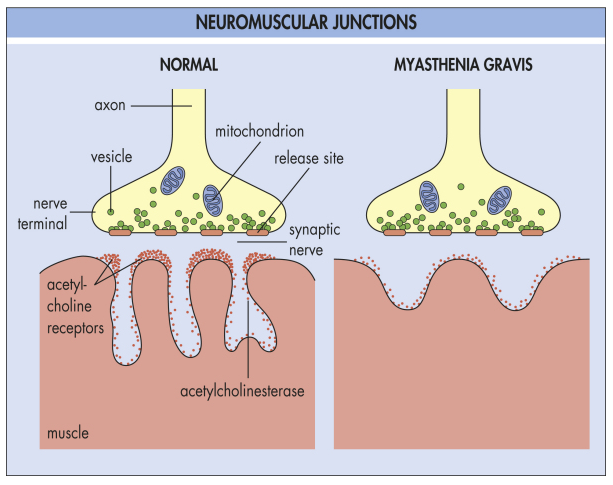Myasthenia Gravis (MG) is a debilitating neuromuscular disease characterized by muscle weakness that gets worse during periods of activity and improves after resting.
It is sometime fatal because the muscles involved with respiration can be involved, but usually affects facial expressions, chewing, coughing, and other muscle functions. Although there is no cure, there are treatments available.
Many people with MG face a long journey to a correct diagnosis, partly because many of the diagnostic tools require specialized training before use, and others patients are misdiagnosed and subsequently treated for the wrong medical condition. MG patients are usually treated long-term with immunosuppressant drugs which can cause damage to the patients immune system. But, a more targeted treatment may be in the works.
Dr. Jeffrey T. Guptill, a noted neurologist with Duke University, has been given a grant by the Myasthenia Gravis Foundation of America to identify biomarkers in MG patients that have the potential to improve diagnosis and predict responses to treatments.
Presently, MG treatments have not been targeted therapies, so by examining the immune system pathways and cells showing evidence of MG, drugs that are already available may be utilized in treating MG patients.

As part of the grant, Dr. Guptill will create multiple research centers that will store MG blood samples for future studies, and may be used in the study of other autoimmune diseases. This will create the opportunity to improve treatments for other rare diseases. And who doesn’t like the idea of that!?



